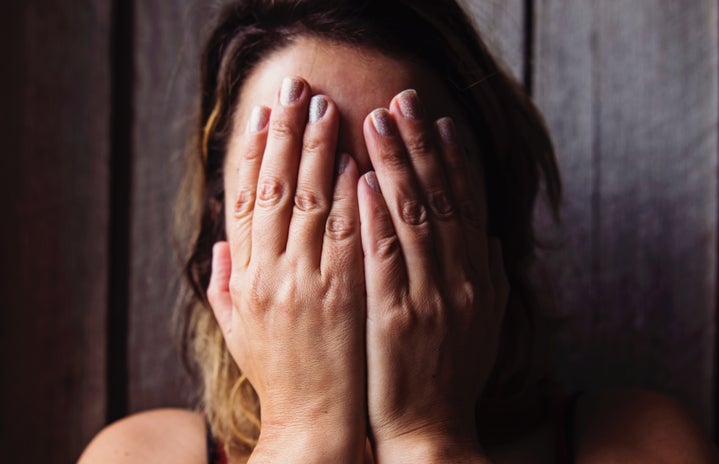Edited by: Bhavika Rawat
Have you ever loved someone you never even met? Not in the “saw a stranger on the metro once” or “sat next to someone my age in an aeroplane” loved them, but deeply, profoundly cared about them, their wellbeing, and their happiness and pain? If you’re any form of fan, you would know what I’m talking about. And if you’re a One Direction fan like me, you, too, recently experienced the inexplicable, horrid gut punch we all did at the news of Liam Payne’s passing away.
I’ve been an avid fan (dare I say- stan) of One Direction for over four years. Their discography, their vivid personalities and their endearing dynamics drew me in, and have kept me in their corner no matter how many years have passed since my initial fangirl phase occured. It is bewildering to me how so many of my other friends who are also hardcore One Direction fans are in a similar situation of always defending, loving and supporting the five members of the group, regardless of how often we listen to their music now, or how much we really even like their solo work anymore. I don’t know if we don’t realise that these relationships we have with them are one-sided, or if they even count as one-sided when these people we idolise constantly communicate with all of us collectively as their fans.
Liam Payne was strangely someone who’s face I saw almost on a daily basis. I follow an extremely popular One Direction fan account on Instagram which updates their followers on the members every single day, and his snapchats, paparazzi interactions and fan meets would pop up on my feed almost every day. Whether I was noticing it or not, these members had casually become people I became used to knowing, even though I did not actually know them. The emotions and actions they had influenced- not only mine, but of all their fans. They had so powerfully impacted their supporters that delighting at their success, defending them, and being disappointed when they messed up simply came naturally.
I had just woken up in the morning when I heard of Liam Payne’s death. I’d slept late, watching commentary YouTube videos curled up in my room, and at around 10 am, the first thing my chronically online self thought of was to, of course, check my phone. But I didn’t even get past my notifications before I saw a text from one of my friends on our group chat.
“Guys” It said. “Liam died?”
My breath caught in my throat right there, and I remember opening up my phone and scrolling through the texts as fast as I could in complete and utter disbelief. I was confused, at first. It had obviously happened- I could see the news on legitimate channels and news outlets- but I refused to actually, fully believe it to be confirmed until I checked that Instagram account. Then, there I saw it- about 13 posts already, all about Liam Payne, the first of which said “RIP”.
The next place I went was X. “Stan twitter”, as it is so fondly called, is a group of fans who create a community of sorts on the app to talk about their favourite celebrities and update each other on opinions about their lives. It might sound silly, but people make friends out there- and this works outside the online community as well.
The first conversations I ever had with two of my closest friends in university were both about One Direction. Glancing at one of their laptops in class and being elated at the Louis Tomlinson wallpaper was what got me talking to one of them, and the other, I texted for the first time because of her Instagram bio (which was a lyric from his song). It’s so clear, then, how the bonds of these relationships with celebrities go further than just connecting us to them, they lead to genuine, real friendships, communities, and belonging.
After what had happened, stan twitter users kept tweeting expressing that they were hiding on the app, because their online community of other fans was the only place they felt validated and free to share their grief- and that they knew no one else would understand it. It was unreal to me how much I connected with that sentiment. It felt silly, almost, feeling upset over the death of somebody I never knew. And at the same time, there was this real, intense sense of grief of knowing I would never again see an update about him, or join his Instagram lives, or rush to YouTube with my friends to play his new single minutes after it dropped. Someone I was so regularly watching and admiring was just gone.
I feel like, however, to understand parasocial relationships for the genuine connections to celebrities that they provide- it’s also necessary to acknowledge the enormously negative balance that can topple a relationship from connected to obsessive.
There were certain allegations that had come out about Liam Payne shortly before what occurred. These allegations almost immediately seemed to go viral, and although they have not been confirmed, they were grim. Such details that us fans are obviously not privy to, can and should impact how we view our idols. Parasocial relationships should not extend to obsessive defence, spewing online hatred at alleged victims, and definitely should not allow anyone to compromise their individual morals and ethics for the sake of a celebrity they idolise. The issue is that this kind of relationship is such a delicate one – balanced purely on the information that is disclosed to fans by their favourite celebrities, that when allegations such as these occur, they refuse to hear anything negative against this person they believe they know.
The dispute regarding parsocialism, though, came to a head in this kind of situation- when fans such as my friends and I heard horrible allegations that, if they were true, would cause us to completely lose respect for the kind of person the idol we thought we knew really is– but before we could really have had a chance to comprehend them, or even figure out if they’re true– something like this happened. The complexity of grieving an individual we never actually knew was only magnified by the thought that he could have done horrible things that none of us would ever condone no matter how much we admired him.
When the news of Liam’s untimely passing hit, it left a void that went far beyond fandom. It was a sobering reminder that behind the headlines and controversies, he was a real person who touched millions of lives with his music, his laughter, and his struggles. He deserved more, and it’s a tragedy that his story ended far too soon. However, acknowledging that and yet finding this balance between loving a celebrity and holding them accountable is already one that many people in these parasocial relationships find hard to keep, but finding that footing in the midst of grieving their death– is something that I don’t think any of us expected to or wanted to do– But if Liam Payne’s story taught us anything, it’s that people are allowed to feel sad and to hold onto the good memories, while also acknowledging the imperfections. After all, honouring his memory means allowing space for both the love and the lessons.


